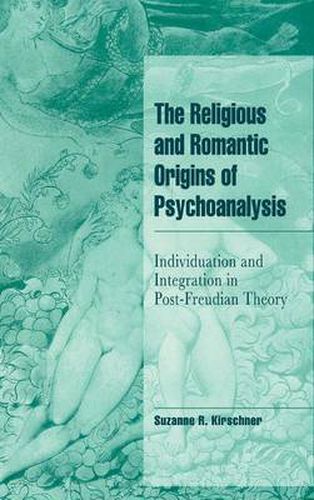Readings Newsletter
Become a Readings Member to make your shopping experience even easier.
Sign in or sign up for free!
You’re not far away from qualifying for FREE standard shipping within Australia
You’ve qualified for FREE standard shipping within Australia
The cart is loading…






In this book, Suzanne Kirschner traces the origins of contemporary psychoanalysis back to the foundations of Judaeo-Christian culture, and challenges the prevailing view that modern theories of the self mark a radical break with religious and cultural tradition. Instead, she argues, they offer an account of human development which has its beginnings in biblical theology and neoplatonic mysticism. Drawing on a wide range of religious, literary, philosophical and anthropological sources, Dr Kirschner demonstrates that current Anglo-American psychoanalytic theories are but the latest version of a narrative that has been progressively secularized over the course of nearly two millennia. She displays a deep understanding of psychoanalytic theories, while at the same time raising provocative questions about their status as knowledge and as science.
$9.00 standard shipping within Australia
FREE standard shipping within Australia for orders over $100.00
Express & International shipping calculated at checkout
In this book, Suzanne Kirschner traces the origins of contemporary psychoanalysis back to the foundations of Judaeo-Christian culture, and challenges the prevailing view that modern theories of the self mark a radical break with religious and cultural tradition. Instead, she argues, they offer an account of human development which has its beginnings in biblical theology and neoplatonic mysticism. Drawing on a wide range of religious, literary, philosophical and anthropological sources, Dr Kirschner demonstrates that current Anglo-American psychoanalytic theories are but the latest version of a narrative that has been progressively secularized over the course of nearly two millennia. She displays a deep understanding of psychoanalytic theories, while at the same time raising provocative questions about their status as knowledge and as science.